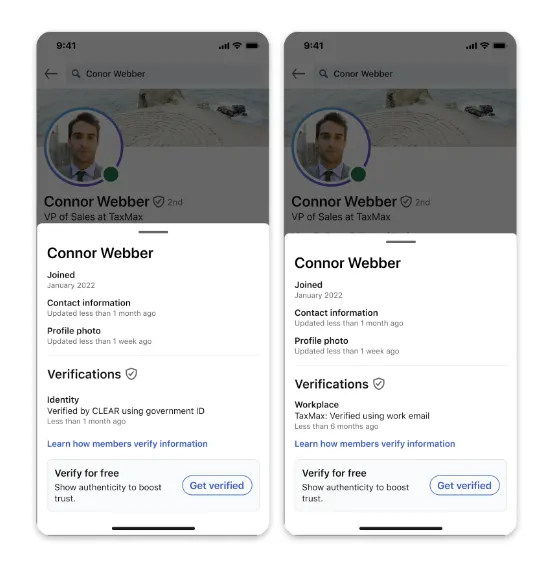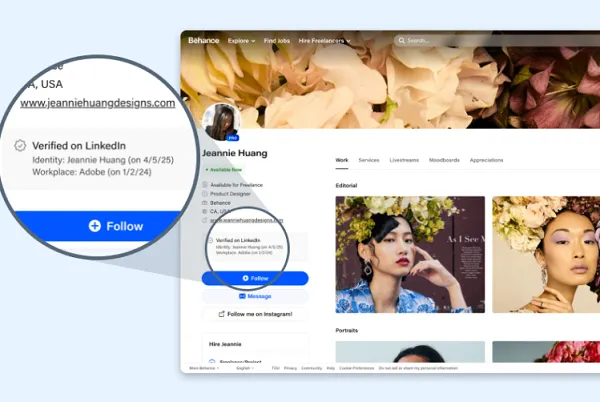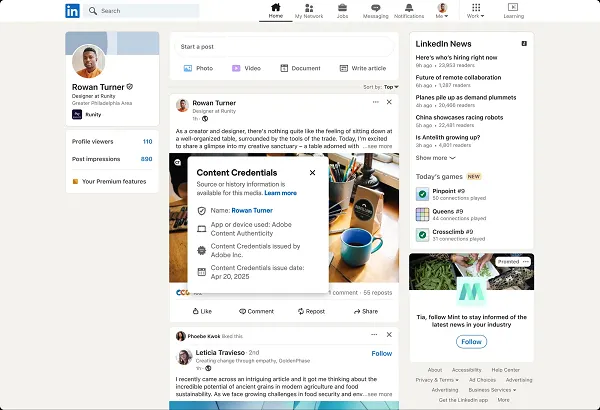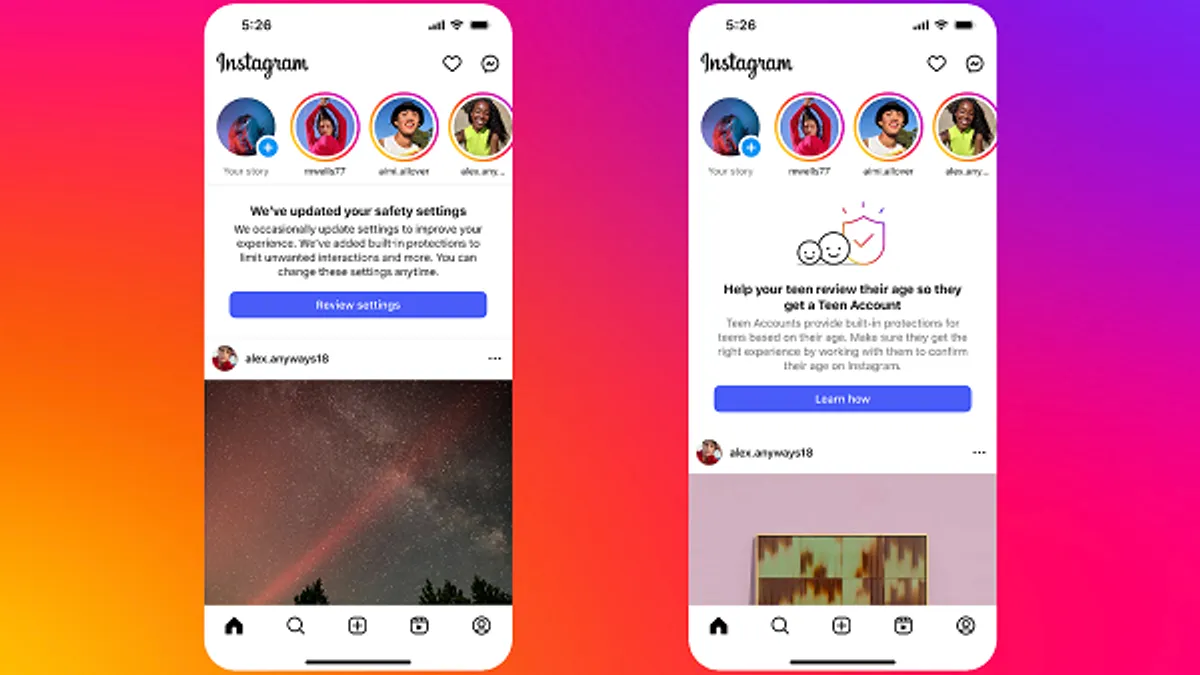LinkedIn Verification Now on Third-Party Platforms
LinkedIn is expanding its ID verification markers to third-party platforms, starting with Adobe. This move aims to enhance trust and security across the web by enabling more services to verify user identities.
Launched in 2023, LinkedIn's free ID verification process uses third-party providers to confirm users' identities. Verified users display a checkmark within the LinkedIn app. Unlike celebrity or paid verification on other platforms, LinkedIn's approach allows all users to confirm their identity.

This expansion allows partners like Adobe to integrate LinkedIn ID into their platforms, eliminating the need for them to establish their own verification systems. For example, Adobe is integrating LinkedIn verification into its Content Authenticity app and Behance portfolio platform.

As reported by The Verge:
Adobe is integrating LinkedIn verification into its new Content Authenticity app and existing Behance portfolio platform, allowing creators who’ve gone through LinkedIn’s verification to display a “Verified on LinkedIn” badge on their profiles. If verified creators use Adobe’s digital Content Credentials tools, their identity will also appear alongside their work whenever it’s shared on LinkedIn.
Over 80 million LinkedIn members have already completed the voluntary ID confirmation process. This growing network of verified profiles helps connect online identities to real people, combating spam, bot activity, and impersonation.
While universal verification across social media platforms remains a complex issue due to privacy concerns, LinkedIn's approach offers a viable alternative. Given its professional focus, LinkedIn members are more inclined to verify their identities to build trust in business relationships.
This initiative demonstrates the feasibility of universal ID verification through third-party partnerships, potentially paving the way for future regulations requiring ID for social media accounts.
Expanding Content Credentials Support
LinkedIn also plans to expand its support for Adobe's "Content Credentials," which allows creators to assert ownership of their content through embedded metadata.

Together, these advancements in ID verification and digital ownership add a crucial layer of trust and security to the web, especially in the face of increasingly sophisticated AI-generated fakes.







